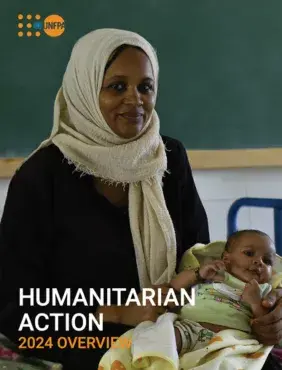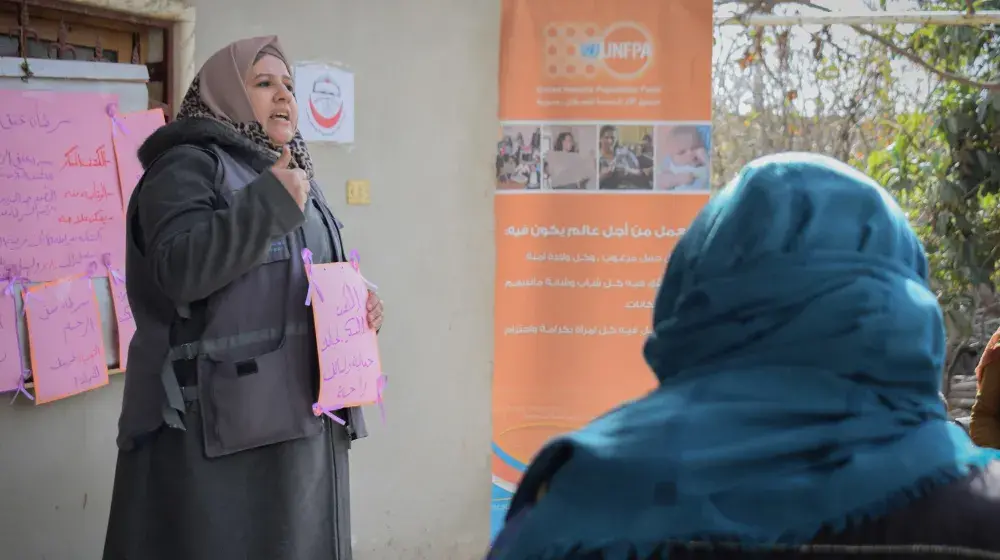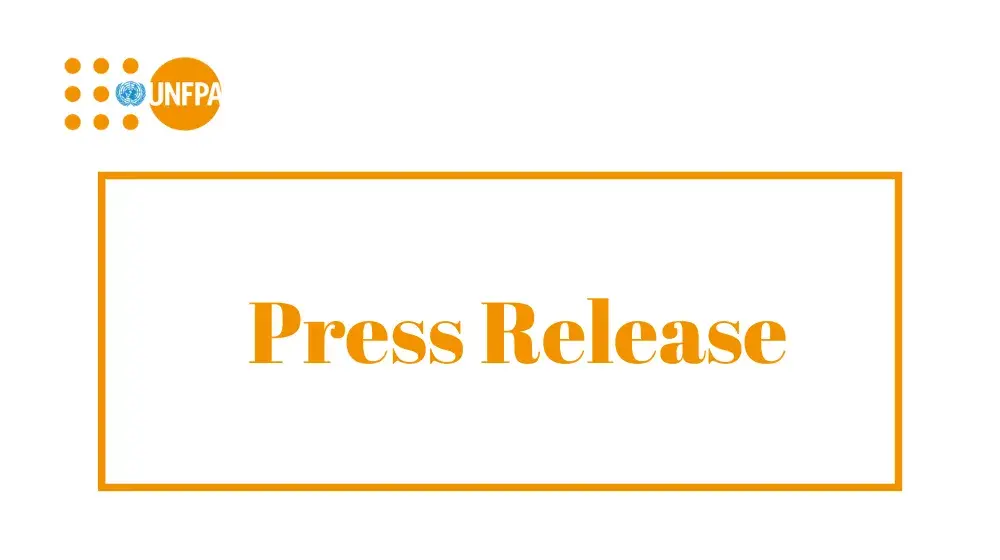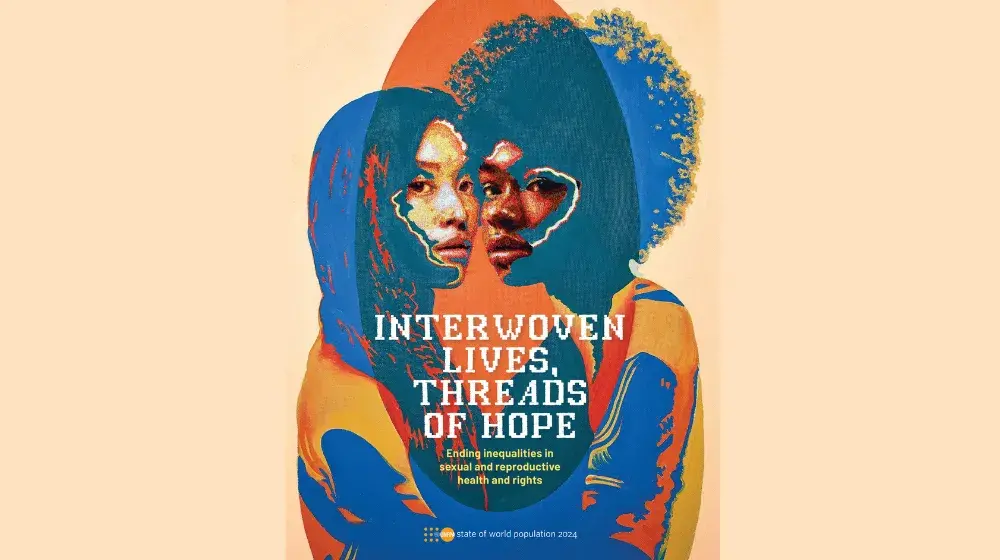In 2023, conflicts and natural disasters devastated the lives of millions of people around the globe. Even as bombs fell and the earth shook and climate impacts continued to be felt, women and girls in humanitarian contexts continued to give birth, to require sexual and reproductive health services, and to seek safety from gender-based violence in their homes and communities. Throughout, UNFPA stood by their side, providing essential services, protecting dignity and rights, and restoring hope. We saved lives and supported a path to a brighter future for women and girls. Najwa, in Aleppo, described struggling through multiple, overlapping catastrophes: “My suffering started with the war in Syria, then the economic situation got worse, and the last straw was the earthquake.” Things began to turn around for Najwa once she was able to receive critical services at a UNFPA safe space.
Our deployment of hundreds of trained midwives to drought- affected parts of Ethiopia helped Amino, 25, deliver safely and successfully for the first time, after three previous pregnancies ended in heartbreak. She called the safe birth of her baby “a miracle”.
By mid-2023, a record 114 million people had been forcibly displaced. On average, half were women and girls – in some crises, they made up nearly 90 per cent of those displaced. Need has been unrelenting. Yet so is UNFPA’s commitment to meeting it. Our rapid actions in 50 countries hit by crises in 2023 meant that over 10 million people received reproductive health services. From Haiti to Ukraine to Yemen and beyond, over 3,600 health facilities were supported to provide life-saving care. More than 4.2 million more people found safety and protection from gender-based violence.
Women and girls sought physical and emotional refuge in 1,700 safe spaces. No woman should die while giving life or live in fear of gender-based violence. Every woman and girl has the right to receive dignified assistance in humanitarian crises. These principles underpin everything UNFPA does, everywhere we work, no matter how dire the circumstances. In Afghanistan, community midwives working through our 360 family health houses are the only health-care providers in remote regions. In Sudan, UNFPA supplies life-saving medicines for pregnant women experiencing obstetric hemorrhage, a leading cause of maternal death.
In Gaza, where around 180 women give birth under appalling conditions each day, UNFPA is distributing reproductive health kits, containing pharmaceuticals, equipment and supplies for emergency obstetric and neonatal care; clean delivery kits to improve the hygienic conditions for birth; and supplies for women who have recently delivered. In Chad recently, which hosts more than a million refugees fleeing conflict in neighbouring countries, I saw dedicated midwives and psychosocial counselors offering compassionate care to survivors of gender-based violence at a UNFPA “one-stop” centre – a safe space where survivors receive comprehensive services, support and protection.
Today, UNFPA’s delivery is faster and reaches farther than ever, putting our experts, supplies, and funds into action as soon as a crisis strikes.
In 2023, 190 humanitarian experts from the UNFPA surge roster were deployed to over 34 countries to support effective responses. Emergency preparedness is increasingly built into our regular operations at all levels. Anticipatory action turns forecasts into plans. Prepositioning of supplies ensures that they are readily available to save the greatest number of lives. Cash and vouchers, which give women a better chance of escaping gender-based violence and accessing health services, are among proven approaches to delivering hope when it matters most. Our community-based approach to programming includes increased support for local women-led organizations, which are often best positioned to meet the needs of the most vulnerable. It includes a systematized approach to ensuring accountability to affected people, including their protection from sexual exploitation and abuse. Next year promises to be another challenging year. Needs are escalating, while funding is falling short. Despite our role in leading global action to safeguard the health and safety of women and girls in crises, UNFPA humanitarian programmes were only funded at 50 per cent in 2023. UNFPA is committed to closing this funding gap. In 2024 UNFPA is appealing for $1.2 billion to provide reproductive health services and run gender-based violence programmes for 48 million women, girls, and young people in 58 countries in humanitarian crises. I am very thankful to our partners and donors who continue to support and invest in us. Their support has never been more essential. Together, we are working for a world where, whatever the crisis, protecting the health, safety, and rights of women and girls is priority number one, laying the foundation for the peace, justice and security that they – and the world – so desperately need.





